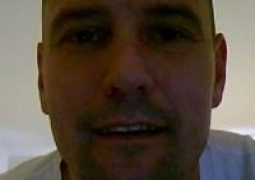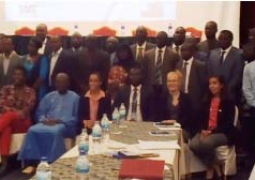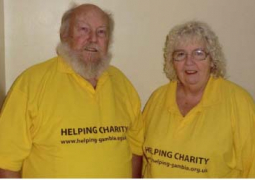The Director of the female wing of the Gambia Association of the Deaf and Hard of Hearing (GADHOH) recently returned home from Eugen Oregon, the US where she attended a course in English Language and leadership.
Isatou Sanyang, a disabled herself, said the three-month course (June-August) she undertook at the 5th Advance Women Institute on Leadership and Disability (WILD) covered lessons that would hone the skills and ability of its participants to discharge their responsibilities with professionalism.
Speaking to this reporter, Mrs Sanyang thanked Mobility International USA (MIUSA) for the support given to her to participate in the course to learn new things and to receive more credentials.
She said she was pleased to return to the US for the second time to attend the disabled women leadership training. This year's advance training, she added, was attended by about sixty disabled women from different countries.
The training, according to Mrs Sanyang, aimed at promoting the rights of disabled women from around the world to empower them, strengthen the voice impact and influence of women, and to advocate for the disabled's organizations and movements internationally.
During the training, we learned a lot on how to work together with disabled women as a family to improve our living condition and to eradicate all forms of discrimination based on gender, sexuality, and religion by bringing marginalised voices and perspectives into the core of our network," she said.
"Women's rights are not only necessary by themselves but are also central to ending the challenges the world faces, eradicating poverty, building peace, and effectively tackling the HIV/AID pandemic." None of these advances, she went on, are possible without a strategy that puts women's rights at the centre.
The activities of the training included presentations by NGOs from different countries and international donor training on gender equality, proposal writing, health for disabled women on how to care for themselves during pregnancy and their babies, importance of interpreter’s service for the deaf, employment, accessibility, education, and gender equality.
"I was lucky to be the only participant from The Gambia who attended this training in 2006 and 2010," she said. "My plans are to work together with disabled women of my country by disseminating what I learnt from the training."
Mrs Sanyang advised other disabled women to believe in themselves, to "engage in something that will build their strength," and to work hard towards the improvement of their living conditions.




